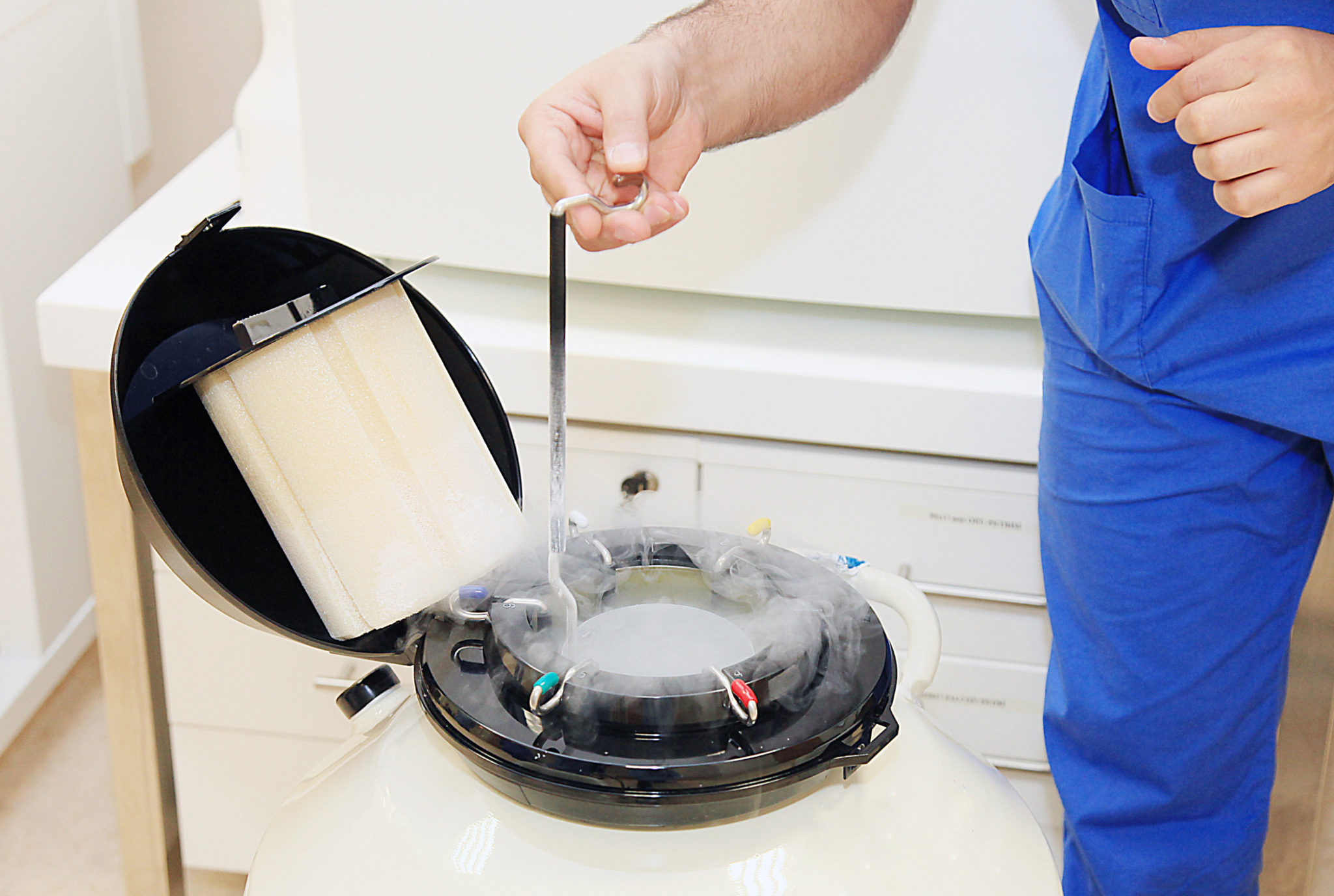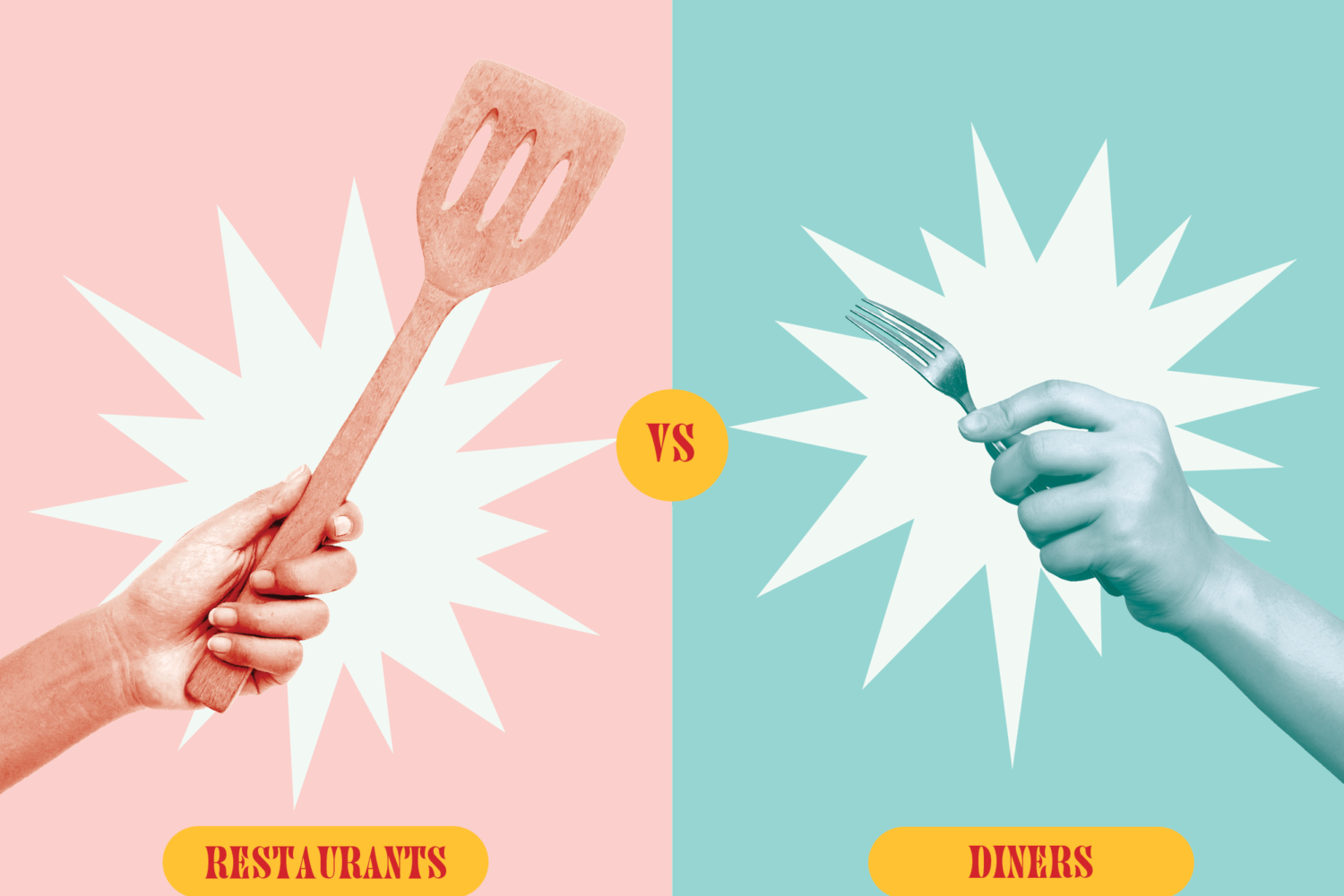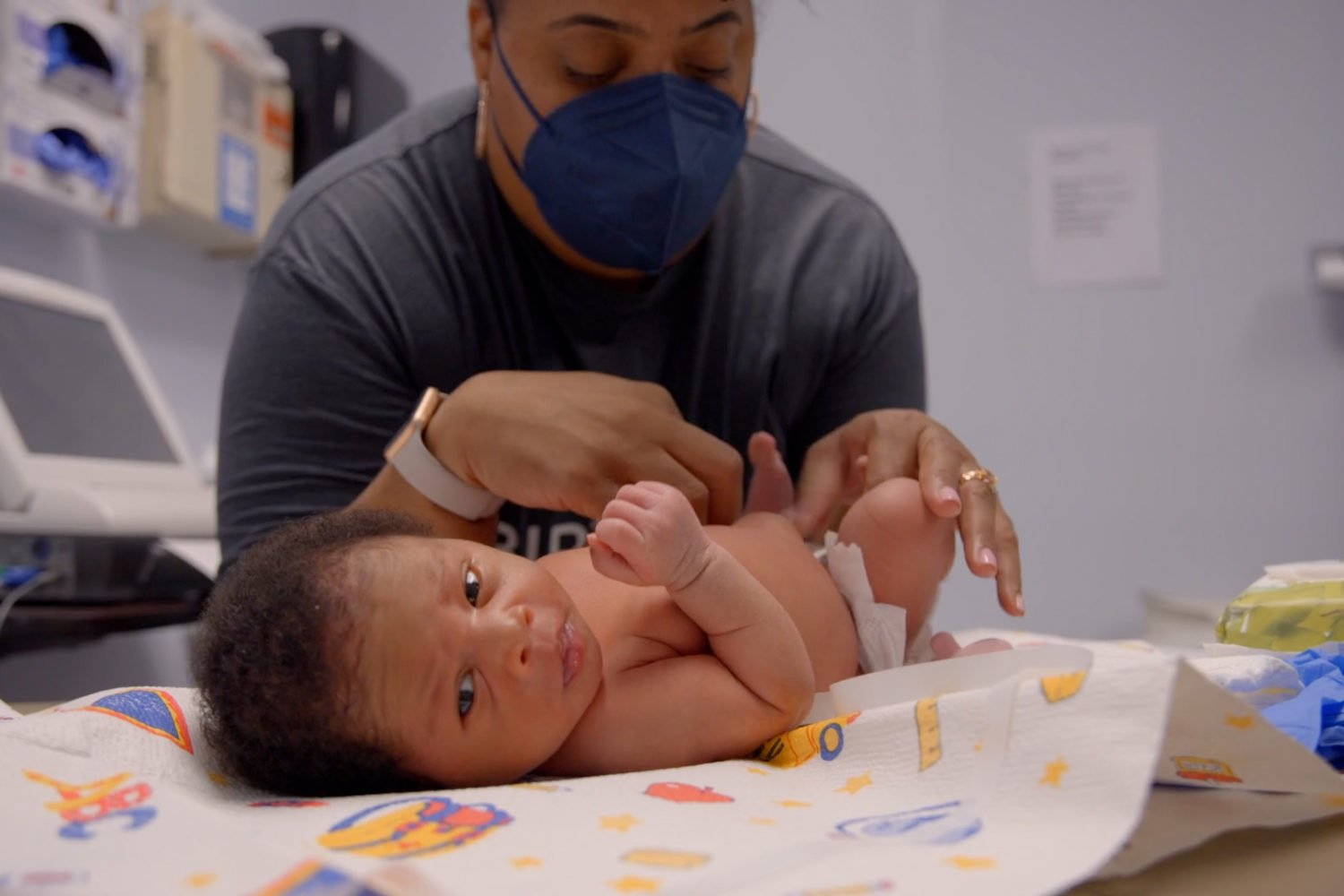Elizabeth McQueen originally saw fertility specialist Naveed Khan about freezing her eggs a few years ago. But the now-39-year-old was too busy at the time to commit to the process: She’d have to go in for frequent ultrasounds and blood work, and many of the injections and medicine she would need to use had to be refrigerated. McQueen has a demanding career as an engineer, and at the time was traveling weekly for work, so that just didn’t seem feasible.
All that changed when Covid-19 hit and she started working from home. “The pandemic did not slow my workload, it just literally kept me in one place because of the travel restrictions,” she says. “So for that reason alone, it became an ideal time to engage in this process [of egg-freezing].”
She visited Khan at Shady Grove Fertility once again last summer, and began the steps for freezing her eggs. She did three cycles, so it took about three months, and now has 22 eggs frozen and waiting.
McQueen is indicative of a larger trend: It seems a lot of folks are freezing their eggs during the pandemic. A recent Time article found that 54 fertility clinics across the US reported higher numbers of patients freezing their eggs in 2020 than in 2019. Locally, Khan says Shady Grove Fertility saw 52-percent more egg retrievals between June and September of last year than it did during the same period in 2019. “Literally, we’ve just been so busy. It’s insane,” says Khan. “People have more time, and I think they have more time to think about it and act.” And Safa Rifka, a reproductive specialist at Columbia Fertility Associates, says his group saw a 50-percent increase in egg-freezing inquiries during 2020.
When it comes to egg-freezing, these doctors say their average patient is in their late-30s or early-40s. While some patients may schedule an appointment for medical reasons—many cancer patients are encouraged to freeze their eggs, as some treatments may impact fertility—many in this area choose to do so for social reasons. “The Washington, DC area—people are getting pregnant in the older range. We rarely find a 25-year-old who wants to be pregnant,” says Rifka. “This is a city that has [people] who are in the workforce, they want to accomplish their career, they’re busy making a living.”
But back to the recent increase: Not only do people have more time to mull over the decision and commit to the procedure, but doctors say the isolation of the pandemic may also be a factor in increased egg-freezing.
In an ideal world, patients would freeze their eggs by age 35, says Rifka, as fertility significantly decreases after that. So for single folks in their mid-30s who want to have children, a year spent in pandemic isolation can make the biological clock’s ticking seem louder. “The age is creeping up, and there is no socialization, so they’re not meeting [who] they want to meet,” says Rifka. “Therefore they are probably thinking of how to preserve their fertility.”
Finances and job security may also be a factor, he says. While a majority of companies do not cover egg-freezing via insurance, says Rifka, employees who do have that coverage may want to use it now, before an uncertain economic future could impact their job. Without insurance, the process can cost thousands of dollars, depending on how many cycles the patient does. (Khan says, however, that he hasn’t seen many patients worry about financing their procedures, a situation he credits partly to Washington’s slightly-more-stable government economy.)
For McQueen, her age and stalled travel schedule were the most pressing factors in undergoing the procedure. While she says she likely would have frozen her eggs eventually, pandemic or not, working from home allowed her to do more cycles, which increases her chances of having viable eggs for an eventual pregnancy.
While McQueen’s not sure when she’ll have a child, she says the entire process has left her with a greater sense of security. “It’s great that [people] have the ability to do this, especially busy working professionals,” she says. “More than anything, it was empowering.”
Still to be determined: Whether the pandemic will result in a baby boom or bust. While Rifka says his clinic has not seen a drop in IVF inquiries, a recent Brookings study predicted that 2021 could see up to 500,000 fewer births this year compared to 2020. But, if the rush of egg-freezing is any indication, fertility is definitely on folks’ minds as we all spend more time at home—whether that means having kids now or later.




















